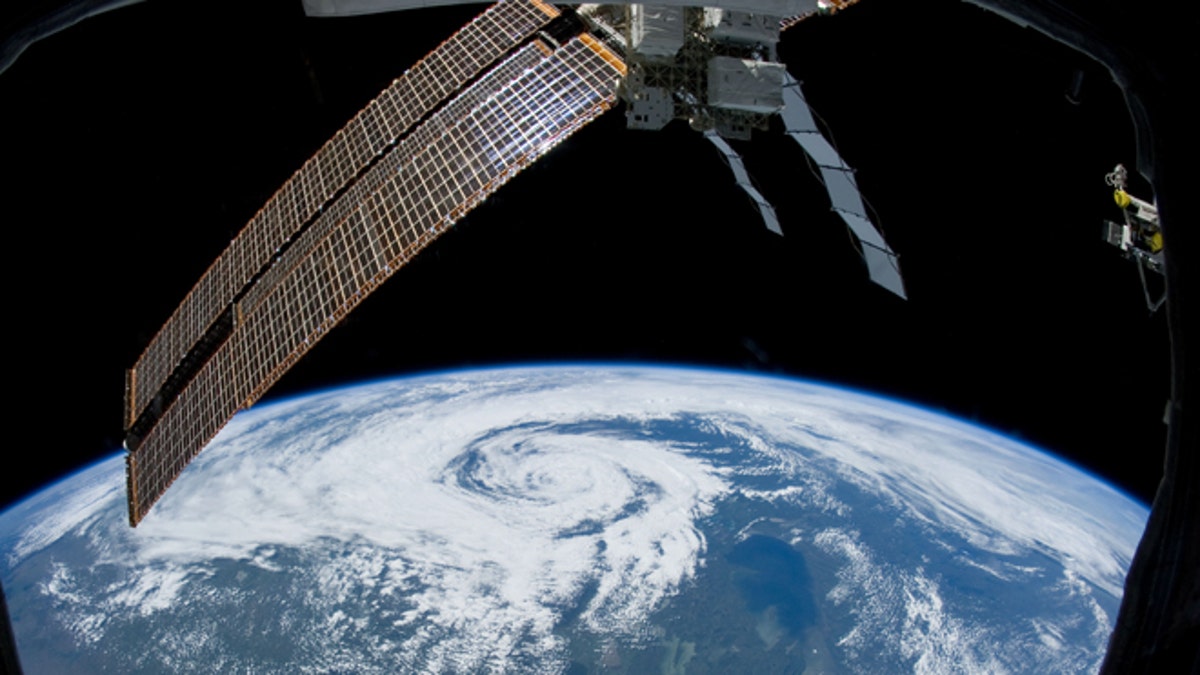
This June 27, 2012 photo released by NASA shows a view aboard the International Space Station, about 240 miles above Earth, featuring a non-tropical cyclone located over northern Saskatchewan, Canada. (AP/NASA)
When astronauts spend long periods of time in space, their hearts start to become spherical, a new study claims, adding another danger to a list of potential mishaps that could occur on a mission to Mars.
The new findings, carried out by NASA and based on an analysis of 12 astronauts who worked at the International Space Station, was showcased at the American College of Cardiology’s 63rd Annual Scientific Session in Washington, D.C., RedOrbit reports.
“The heart doesn’t work as hard in space, which can cause a loss of muscle mass,” senior study author James Thomas, MD, Moore Chair of Cardiovascular Imaging and Lead Scientist for Ultrasound at NASA, said in a statement. “That can have serious consequences after the return to Earth, so we’re looking into whether there are measures that can be taken to prevent or counteract that loss.”
In the study, astronauts onboard the ISS used ultrasound machines to take pictures and provide data of their hearts before, during and after space missions. Results showed that the heart became more spherical by a factor of 9.4 percent, which may mean that the organ is performing less efficiently in areas of low gravity. Long-term health effects stemming from the spherical shape are currently unknown.
Past studies have shown that astronauts have been exposed to various health issues when taking long trips in space, such as losses in bone density and vision anomalies, RedOrbit reports.
Scientists hope to use the results of the study to see how a spaceflight lasting 18 months or longer would impact the health of astronauts.
Thomas said the heart’s spherical shape returns to normal after astronauts head back to Earth.




















